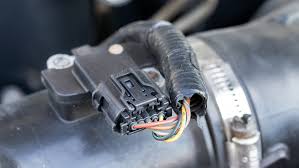Will Rubber Gloves Stop Electric Shock?

Rubber gloves are commonly thought to offer protection against electric shock, but whether or not they are effective depends on several factors. While rubber is an insulating material, it’s important to understand the type of rubber gloves and the situation to determine their effectiveness in preventing electric shock.
How Rubber Gloves Work as Insulation
Rubber is a non-conductive material, meaning it does not allow electricity to flow through it easily. In theory, rubber gloves can protect you from electric shock by acting as an insulator, preventing direct contact with electrical currents. However, not all rubber gloves are made to withstand high voltages.
Factors That Affect Rubber Gloves’ Ability to Stop Electric Shock
1. Voltage Level
- Low-voltage shock: For low-voltage scenarios (like static electricity or small household electrical appliances), rubber gloves may offer some level of protection.
- High-voltage shock: High-voltage electricity, such as what is found in industrial or power line work, requires gloves specifically rated to handle those voltages. Ordinary rubber gloves are unlikely to prevent a shock at higher voltages.
2. Type of Rubber Gloves
- Insulated Gloves for Electrical Work: Specially designed insulating gloves for electrical work are tested to specific voltage levels and are certified by safety standards (e.g., ASTM or IEC standards). These gloves are made from thicker, high-quality rubber and are often part of personal protective equipment (PPE) used by electricians.
- Ordinary Rubber Gloves: Regular rubber gloves (such as those used for cleaning or dishwashing) are not designed to protect against electrical shock and provide little to no protection.
3. Condition of the Gloves
- Cracked or Worn Gloves: Even if you have the right gloves, wear and tear can compromise their effectiveness. Cracks, punctures, or degradation of the rubber will allow electricity to pass through, making them ineffective for shock protection.
4. Moisture
- Wet Conditions: Rubber gloves may become less effective if they are wet or if you are working in a damp environment. Moisture can decrease the insulating properties of rubber, making it easier for electricity to pass through.
When to Use Rubber Gloves for Electrical Safety
1. Low-Voltage Tasks
- Rubber gloves can provide some protection in situations involving low-voltage electricity, such as changing light bulbs or working with small appliances, but they should still be used with caution.
2. Electrical Work in Safe Conditions
- Insulated gloves rated for electrical work should be used in any professional setting where exposure to electrical current is possible, such as working on electrical panels or near high-voltage lines.
3. Inappropriate for High-Voltage Work Without Proper Training
- For high-voltage work (such as power lines or industrial systems), regular rubber gloves should never be relied on as a primary safety measure. Certified electrical gloves are required, and proper training and safety protocols must be followed.
Frequently Asked Questions (FAQs)
1. Can regular rubber gloves protect against electric shock?
No, regular rubber gloves, such as those used for cleaning, do not provide reliable protection against electric shock, especially in high-voltage situations.
2. How do I know if my rubber gloves are safe for electrical work?
Rubber gloves designed for electrical work are insulated and should be rated for specific voltage levels. They should be clearly labeled with certification standards like ASTM or IEC, which indicate their ability to withstand electrical currents.
3. Can wet rubber gloves protect against electric shock?
No, wet rubber gloves can significantly reduce the insulating properties of rubber, increasing the risk of electric shock. Always ensure gloves are dry when working with electricity.
4. Can rubber gloves stop electrocution?
Rubber gloves may reduce the risk of electrocution by providing insulation, but they must be designed for electrical work and in good condition. For high-voltage situations, gloves rated for such tasks should be used along with other protective equipment.
5. Are rubber gloves enough to protect me from electricity?
While rubber gloves can provide some insulation, they are not a substitute for proper safety gear when working with electricity. Always use certified protective equipment and follow safety guidelines.
Final Verdict: Will Rubber Gloves Stop Electric Shock?
In general, rubber gloves can prevent electric shock if they are designed specifically for electrical work and are in good condition. However, ordinary rubber gloves provide little to no protection against electric shock, especially in high-voltage scenarios. Always use properly rated insulating gloves and adhere to safety standards when working with electricity to minimize the risk of injury or electrocution.
Also Check:
• Can You Use WD-40 to Clean a PCV Valve?





